| Meaning
of Name |
After the French ichthyologist Dr.Jacques Géry.
|
| First
Description |
Lambert J.G. 1958
Poissons Siluriformes et Cyprinodontiformes,
récoltés en Guinée française avec la description
d'une nouvelle espèce de Microsynodontis.
Revue de Zoologie et de Botanique Africaines
57 (1-2):52-53, figure 6.
|
| Size |
5 cm (8 cm has been reported).
|
| Meristics |
- D = 13-15, A = 16-17, D/A = +3-6, ll = 31-34
(Lambert 1958
- D = 12-15, A = 15-18, ll = 28-31 (Radda &
Pürzl 1987)
|
| Karyotype |
n = 20, A = 21 (Scheel 1974; Romand 1981)
|
| Sub-Genus |
|
| Group |
liberiense
|
| Synonyms |
- Aphyosemion guineense geryi
Lambert 1958
- Aphyosemion roloffi
(non Roloff 1936) Daget 1960
- Aphyosemion liberiense
(non Boulenger 1908) Daget 1961
- Roloffia geryi
Bech 1968
- Aphyosemion geryi
Wiefel et al. 1968
- Aphyosemion
(Callopanchax) geryi
Radda 1970
|
|
Populations
- Abuko (Gambia)
- Assirik - ? 07 / 01
- Barmoi (Sierra
Leone)
- Barrasikale
- Battabut
(Gambia)
- Bintang (Gambia)
- Bintimodia
- Boffa
- Boké
- Boutonya
(Sierra Leone)
- Bridal Veil OMG-2018
- Brikama (Gambia)
- Bwiam
(Gambia)
- Cassamance (Senegal)
- Conakry
(southeastern Guineé)
- Coyah
(Guineé)
- Dandayah
- Déola
- Dubreka (Guineé)
- Farmoraeya (Guineé)
Farmoreya ?
- Gaoual
- Gbalayah
(Sierra Leone)
- Gbessia
(Guineé) corrupted Ghessia
?
- Gobi
- Jakombi
- Jattaba
(Gambia)
- Kamalon River
- Kamara Bounyl (possibly
Bounyi)
- Kambia
(Sierra Leone)
- Kamsar
- Kerfay
- Kenema
(Sierra Leone)
- Kertay (Sierra Leone)
- Koba (Guineé)
- Kogon (Guinea Bissau)
- Kolayire
- Kolda Tamaf
- Kolente River (Guineé)
- Lisso
- Mabusi
- Mafundi
- Magbosi (Sierra
Leone)
- Makeni
(Sierra Leone)
- Malai
- Mamampo
- Mamanka
(Sierra
Leone)
- Masa
(SLCD 84/23)
- Masheineh (Sierra
Leone)
- Masiaka
- Masine Swamp (SLCD
84/12)
- Mola
- Ndyarendi
(Guinea Bissau)
- Porto Loko
- Robis I (Sierra
Leone)
- Rokupr
- Rotain (Sierra
Leone)
- Rotamp
(Sierra Leone)
- Sud (south) Gaoual
- Tanéné
- Tinquilinta
- Thia (Tiya?) (Guineé)
- Ufule - GBMR 08 / 08
- Voile de la Marie
- Woleya
- CI 93 (BKA
code)
- GCLR 06 / 12 - South Gaoual
- RL 28
|
|
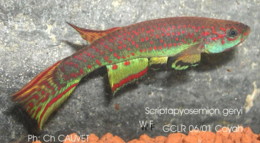
GCLR 06 / 01 Form A
- Coyah
Photos of GCLR 06 all courtesy of Christian Cauvet
|
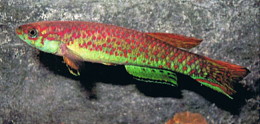
GCLR 06 / 01 Form B
- Coyah
Photocourtesy of Christian Cauvet
|
|
Photos
of GCLR 06 all courtesy of Christian Cauvet
|
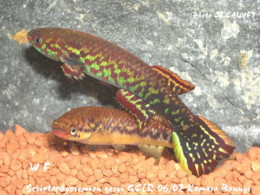
GCLR 06 / 02 Kamara
Bounyi
|
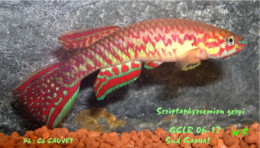
GCLR 06 / 12 Sud Gaoual
|
|
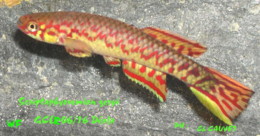
GCLR 06 / 16 Déola
|
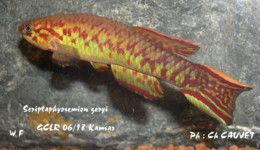
GCLR 06 / 18 Kamsar
|
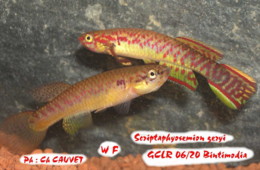
GCLR 06 / 20 Bintimodia
|
|
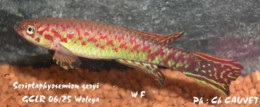
GCLR 06 / 25 Woleya
|
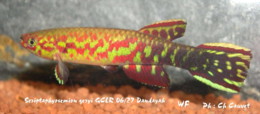
GCLR 06 / 27 Dandayah
|
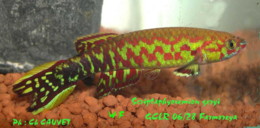
GCLR 06 / 28 Farmoreya
|
|
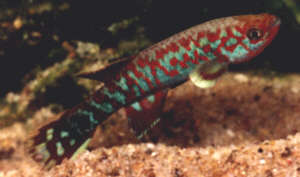
S.geryi
Abuko. Photo courtesy
of Roger Gladwell
|
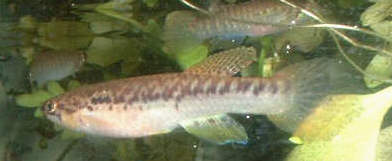
Script
geryi Abuko Blue
female. Photo courtesy
of Alan Green.
|
|
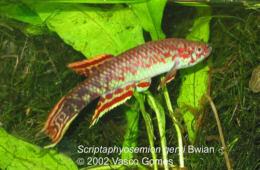
Bwiam.
Photo courtesy of Vasco Gomez - See
website.
|
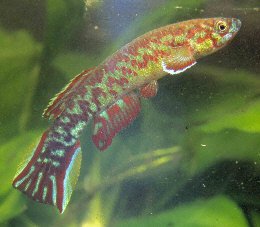
Robis 1. Photo
courtesy of Christian Cauvet.
|
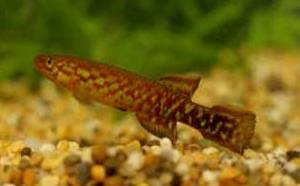
CI 7 / 93
|
|
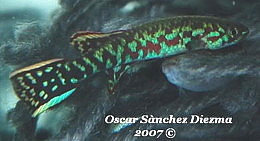
Kolente River - Male
|
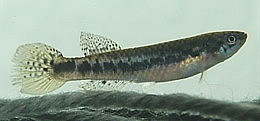
Kolente River - Female
Photo courtesy of Oscar Sànchez Diezma
|
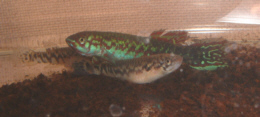
TAAG 2002 / 3
taken at the 2003 BKA convention
|
|
|
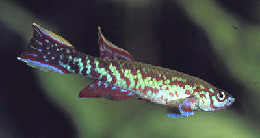
Robis 1
Photo courtesy of Gunther Schmaus
|
|
|
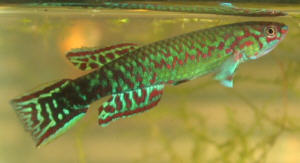
|
Script.geryi CI
97. These were imported through Goldenline .
I distributed them as Roloffia
sp.Guinee in 1997.
Photo courtesy of David Baker |
|
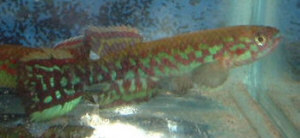
|
Script.geryi
TAAG 2002/3. Also imported through Goldenline & distributed
to the conservation project in 2002.
Photo courtesy of Alan Green
|
Abuko - Collected by Froelich
in 1973.
Collected by Brown in 1983. Abuko is an area of Gambia which includes
the Abuko National Park.
Barmoi - Collected by Roloff in 1965.
Collected by Busch & Wiese in 1993 (SL 93 code).
Battabut - Collected by Rust in 1974.
Collected by Neumann in 1982.
Bintang - Collected by Eggers in 1978.
Boutonya - Collected by Busch & Wiese in 1993 (SL 93 code).
Brikama - Collected by Froelich in 1972.
Bwiam - Collected by Eggers in 1978.
Cassamance - A reference to this
population was found in BKA newsletter No.249, May 1986 as being a recent
introduction. Also later seen as a commercial import by Marcinelle /
Belgien. Reported by Etzel & Berkenkamp 1989.
Conakry - The type locality was
collected by Lambert et al in 1955.
Collected by Kretzschmar in 1966.
Coyah - Possibly collected by Romand
in 1979.
Farmoreya - Unknown collector &
year of collection.
Dubreka - Collected by Lambert et
al in 1955.
Gbalayah - Collected by Busch &
Wiese in 1993 (SL 93 code).
Gbessia - Collected by Romand et
al in 1975. Known to be in the BKA in 1986.
Jattaba - Collected by Eggers in
1978.
Kambia - Unknown collector &
year of collection.
Kenema - Collected by Roloff in
1965.
Kertay - Collected by Busch &
Wiese in 1993 (SL 93 code).
Koba - Collected by Daget in 1964.
Kogon - Collected by Teugels in 1992.
Kolente - This population found in a commercial import in 1985.
Kolente River - Collected by Daget in 1964.
Magbosi - Collected by Busch & Wiese in 1993 (SL 93 code).
Makeni - Unknown collector & year of collection.
Mamampo - Known to be in circulation in the BKA in 1986.
Mamanka - Collected by Busch & Hellner in 1989 (SL 89 code).
Masheineh - Collected by Busch & Wiese in 1993 (SL 93 code).
Ndyarendi - Collected by Teugels in 1992.
Porto Loko - Collected by Fred Wright in 1975.
Robis 1 - Collected by Etzel
& Kessel in 1975. This population was predominantly red. Collected
by Busch & Hellner in 1989 (SL 89 code) (Robis 1)
Rotain - Collected by Busch &
Hellner in 1989 (SL 89 code).
Rotamp - Collected by Roloff in
1965.
Thia - Collected by Daget in 1964.
|
| Type
Locality |
The Conakry - Dubreska district of Lower Guinee.
|
| Distribution |
Widespread distribution area from an area around
the mouth of the Gambia River south to the Porto Loko region of southeastern
Sierra Leone.
|
|
|
Small well shaded coastal savannah
brooks & streams.
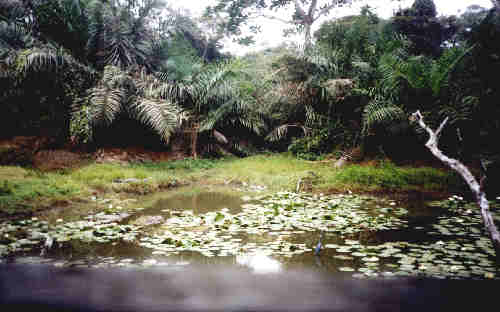
Taken in 1989 in the area of Abuko.
Photo courtesy of Roger Gladwell.
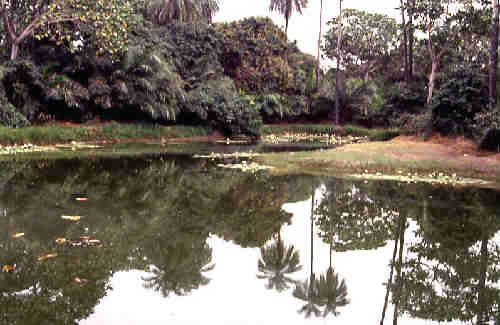
Taken in 1993 in the area of Abuko.
Photo courtesy of Roger Gladwell.
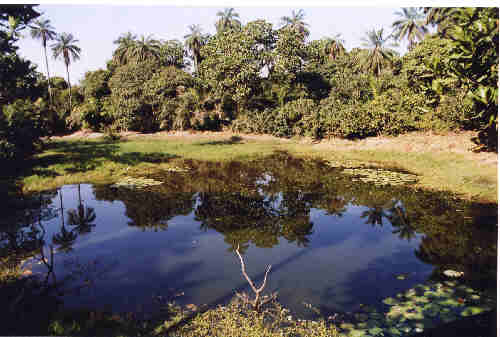
A crocodile pond at Abuko. Photo
taken in 2003.
Photo courtesy of Roger Gladwell.
|
| Distinguishing
Characteristics |
Females
recognised by zig zag lines on flanks. |
| Colour/Pattern
Variability |
High. |
| History |
Lambert described this species in 1958 from 20
specimens caught in the Conakry - Dubreska district of Lower Guinee.
Roloff caught them in 1962 in Sierra Leone &
in 1965 supplied Scheel with material from Kenema.
In October 1967 (at the end of the dry season)
Kuschereitz re-discovered them 20 kms from Conakry in the direction
of Kindia. The water in this region was reported to be tinted red from
rich deposits of Bauxite in the earth. This collection probably became
circulated in the hobby as KCF 1.
Many populations have been discovered over the
years:-
Abuko & Battabut, Gambia. Both locations
are fairly close to each other. Other species found in the biotope included
Epiplatys bifasciatus, E.spilargyreus
& 'red' cichlids (possibly Hemichromis
sp.). Many people have caught them from these locations, amoung them
Frohlich in 1972, 1974 & 1977 & Rust in 1974.The Abuko population
was widely distributed in the UK in 1986.Quite large populations reported
to reach 8 cm in length.
Barmoi, Kenema, Makeni, Rokupr, Rotamp, Sierra
Leone. Collected by Roloff.
|
| Breeding
Notes |
It has been reported that young fish prefer to
lay at the surface whilst older fish lay near the bottom.
Water incubation 13 - 21 days (some publications
state 17-29 days). Fry are small on hatching & do better with infusoria
for a few days. It can take 6 months or more for the young to reach
sexual maturity.
Anthony Pinto in BKA newsletter No.249, May 1986
gives a breeding report for the Gbessia population. The original stock
reportedly endured temperatures of 45-50°C whilst in transit for
4 days & survived.
The breeding water was 24°C, pH around neutral, DH 2. A few clumps
of peat fibre were added. It was noted that water changes are not appreciated
by the breeding fish & only 25% was changed every month. Males are
reportedly not hard drivers.
The majority of eggs were found in floating mops although some were
laid at the bottom of the tank. On average around 40 eggs per week were
collected. Young breeders were noticed to produce many infertile eggs
but this improved as the fish matured. Water incubation takes about
3 weeks & the fry are very small on hatching requiring infusoria
for the first few days.
Growth was fairly slow with the first signs of breeding attempts being
made at 3 months.
_________________________________________________________________
Michael McCarthy of the AKA kindly sent me a
report of his experiences with the Abuko population:-
'I've been keeping Script. geryi
'Abuko' and I initially had trouble with the eggs fungusing when water
incubating, once one went bad I would lose the entire batch in a couple
of days. The best solution I found was to store the eggs on peat fibre.
Eggs are then checked daily for a week and any bad eggs removed. The
eggs are stored for 18-21 days total at 23°C (at this point, they
should stand out clearly on the peat and even at the small size of the
eggs, they can be seen to be eyed up). The eggs can then be put into
a hatching container and will hatch out in 24-36 hours. This eliminates
staggered hatching associated with water incubating and greatly increases
the hatch rate. I've not noticed a skew in the sex ratio from this method,
nor belly sliders'.
|
| Diameter
of Egg |
0.9
- 1.1 mm |
| Remarks |
A rather shy species which likes to hide. If
given a large enough tank with plenty of plant cover they can be encouraged
to put in an appearance.
|














